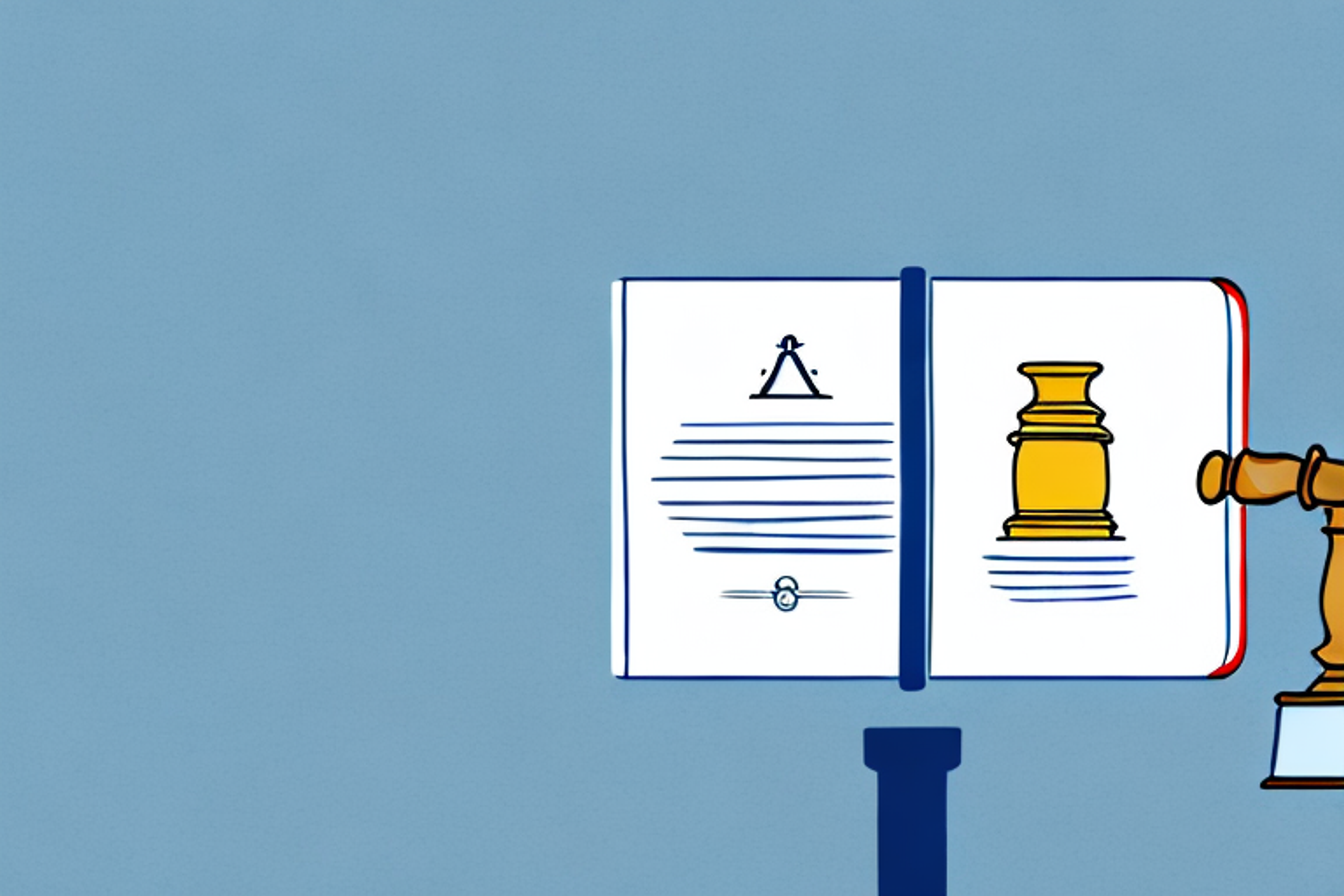How to Get Into Law School as a Queer Candidate
If you identify as queer and are interested in pursuing a career in law, this article is for you! Discover valuable tips and insights on how to navigate the law school application process as a queer candidate and increase your chances of getting accepted.
Posted March 6, 2025

Table of Contents
Free Event

Featuring Indrani S.
Law School App Office Hours with a Former Stanford AdCom Member
Starting Thursday, April 17
11:30 PM UTC · 45 minutes

Featuring Indrani S.
If you identify as queer and are considering applying to law school, it's important to be aware of the unique challenges and opportunities you might encounter during the admissions process, as well as during your time as a law student. In this article, we'll provide you with insights and advice on how to navigate this exciting but sometimes daunting journey.
Understanding the Unique Challenges Queer Candidates Face in Law School Admissions
While many law schools pride themselves on being diverse and inclusive, the reality is that queer candidates can still face obstacles during the admissions process. For example, some admissions committees may be unfamiliar with queer identities or fail to recognize their value in a law school setting. Additionally, queer candidates may worry about discrimination or bias from other students or faculty members once they are admitted.
Furthermore, queer candidates may also face financial barriers when applying to law school. Many queer individuals come from marginalized communities and may not have the same financial resources as their peers. This can make it difficult to afford application fees, LSAT prep courses, and other expenses associated with the admissions process. Law schools should work to provide financial support and resources to queer candidates to ensure that they have an equal opportunity to pursue a legal education.
Breaking Down the Law School Admissions Process for Queer Candidates
So, what exactly does the law school admissions process entail? As a queer candidate, you'll need to take several steps to submit a strong application. These steps include researching schools that prioritize diversity, taking standardized tests like the LSAT, and crafting a compelling personal statement that highlights your unique experiences and skills. We'll dive deeper into each of these areas in the following sections.
Additionally, it's important for queer candidates to seek out resources and support during the law school admissions process. This can include connecting with LGBTQ+ student organizations at prospective schools, reaching out to queer lawyers or law students for advice, and seeking out scholarship opportunities specifically for LGBTQ+ students. By utilizing these resources, queer candidates can not only strengthen their applications but also find a supportive community within the legal profession.
Tips for Crafting a Compelling Personal Statement as a Queer Applicant
One key to standing out as a queer candidate in your law school application is to craft a strong personal statement. This statement should showcase your unique experiences, skills, and perspectives in a way that demonstrates your potential as a law student.
Consider discussing any leadership roles you've held within the LGBTQ+ community, or delve into the ways in which your queer identity has shaped your worldview and approach to problem-solving. You might also share examples of how you've overcome adversity or discrimination to achieve your goals, as this can help admissions committees understand your resilience and determination.
Another important aspect to consider when crafting your personal statement is to highlight your passion for social justice and advocacy. As a queer applicant, you have a unique perspective on issues related to LGBTQ+ rights and equality. Use your personal statement to showcase your commitment to making a positive impact in the legal field, and how you plan to use your law degree to advocate for marginalized communities.
Navigating the LSAT and Other Standardized Tests as a Queer Candidate
Like all law school applicants, you'll need to take one or more standardized tests as part of the admissions process. The most commonly required test is the LSAT, which measures critical thinking, analytical reasoning, and reading comprehension skills.
If you're worried about facing bias or discrimination during the test, there are several resources and accommodations available to you. For example, you can request extra time or a separate testing room, or you can work with a tutor or mentor who understands the unique challenges you may face as a queer candidate.
It's important to note that being a queer candidate can also impact the content of the standardized tests themselves. For example, many LSAT questions are based on assumptions about gender and sexuality that may not align with your own experiences or perspectives. It's important to stay aware of these biases and to approach the test with a critical eye.
Highlighting Your Diversity: Strategies for Showcasing Your Identity in Your Application
It's important to remember that your queer identity is a valuable asset in the law school admissions process. So, how can you highlight your diversity in a way that resonates with admissions committees?
One approach is to research schools that prioritize diversity and either explicitly state or suggest that they are LGBTQ+ friendly. Once you've identified these schools, consider highlighting specific programs or initiatives they offer that support queer students. This might include LGBTQ+ affinity groups, diverse hiring practices, or a commitment to social justice issues.
Another strategy is to share personal experiences that demonstrate your commitment to diversity and inclusion. This could include volunteer work with LGBTQ+ organizations, leadership roles in queer student groups, or advocacy work for marginalized communities. By sharing these experiences, you can showcase your passion for social justice and your ability to contribute to a diverse and inclusive law school community.
Finding and Applying to LGBTQ+ Friendly Law Schools
While there is no definitive list of "LGBTQ+ friendly" law schools, there are many resources available to help you identify schools that prioritize diversity and inclusivity.
One helpful resource is the Law School Admission Council's LGBTQ+ Guide, which provides a list of schools that offer specific programs or initiatives for queer students. You might also reach out to current law students, alumni, or faculty members at the schools you're considering to get a sense of their experiences and perspectives.
It's important to note that LGBTQ+ friendly law schools not only provide a welcoming environment for queer students, but also offer resources and support for their academic and professional success. These schools may have LGBTQ+ student organizations, mentorship programs, and career services that cater to the unique needs and challenges faced by queer law students.
Additionally, some law schools may have faculty members who specialize in LGBTQ+ legal issues or offer courses that focus on queer rights and advocacy. These opportunities can provide valuable knowledge and skills for students who are interested in pursuing a career in LGBTQ+ law.
Getting Involved: Opportunities for Queer Law Students to Connect and Advocate
Once you've been admitted to law school, there are many opportunities for you to get involved in LGBTQ+ advocacy and connect with other queer students and allies. For example, many law schools offer LGBTQ+ affinity groups, which provide a space for students to network, share resources, and discuss issues facing the LGBTQ+ community.
You might also consider joining student groups or organizations that focus on LGBTQ+ rights, social justice, or diversity more broadly. These groups can help you build connections with like-minded students, develop your leadership skills, and advocate for issues you care about.
Additionally, some law schools offer clinics or externships that focus on LGBTQ+ legal issues. These programs provide hands-on experience working on cases related to LGBTQ+ rights and can be a great way to gain practical skills while making a difference in the community. You can also look for internships or volunteer opportunities with LGBTQ+ legal organizations or advocacy groups to further your involvement and impact.
Overcoming Bias and Discrimination in Law School and Beyond
Unfortunately, queer law students may still face bias or discrimination from fellow students or faculty members during their time in law school. If this happens to you, it's important to know that you are not alone, and that there are resources available to support you.
You might reach out to your school's LGBTQ+ affinity group, or connect with faculty members or administrators who are known for their commitment to diversity and inclusivity. Additionally, you might consider working with an outside advocate or organization, such as Lambda Legal, which offers legal advice and advocacy for LGBTQ+ individuals.
It's important to note that bias and discrimination can also occur beyond law school, in the legal profession itself. LGBTQ+ lawyers may face challenges in finding employment or advancing in their careers due to discrimination. However, there are organizations such as the National LGBT Bar Association that offer resources and support for LGBTQ+ legal professionals.
Another way to combat bias and discrimination is to become an ally and advocate for marginalized communities. This can include attending trainings or workshops on diversity and inclusion, speaking out against discriminatory behavior, and actively seeking out diverse perspectives and experiences in your work and personal life.
Building a Strong Support Network: Resources for Queer Law Students and Graduates
Finally, it's important to remember that there is a strong and supportive network of queer lawyers, law students, and graduates who can offer you mentorship, advice, and resources as you navigate the legal profession.
You might consider connecting with LGBTQ+ legal organizations like the National LGBT Bar Association, which provides networking opportunities and support for queer legal professionals. Additionally, you might seek out mentorship or advice from queer lawyers or judges who you admire and respect.
With these resources and strategies at your disposal, you can confidently embark on your law school journey as a queer candidate, knowing that your experiences and identity are valuable and respected within the legal community.
Another valuable resource for queer law students and graduates is the LGBTQ+ affinity groups that exist within many law firms and legal organizations. These groups provide a space for queer legal professionals to connect, share experiences, and support one another. Joining an affinity group can also provide opportunities for networking and professional development.
It's also important to remember that you don't have to navigate the legal profession alone. Consider finding a mentor or ally within your law school or workplace who can offer guidance and support. This could be a professor, staff member, or colleague who is committed to promoting diversity and inclusion within the legal profession.










